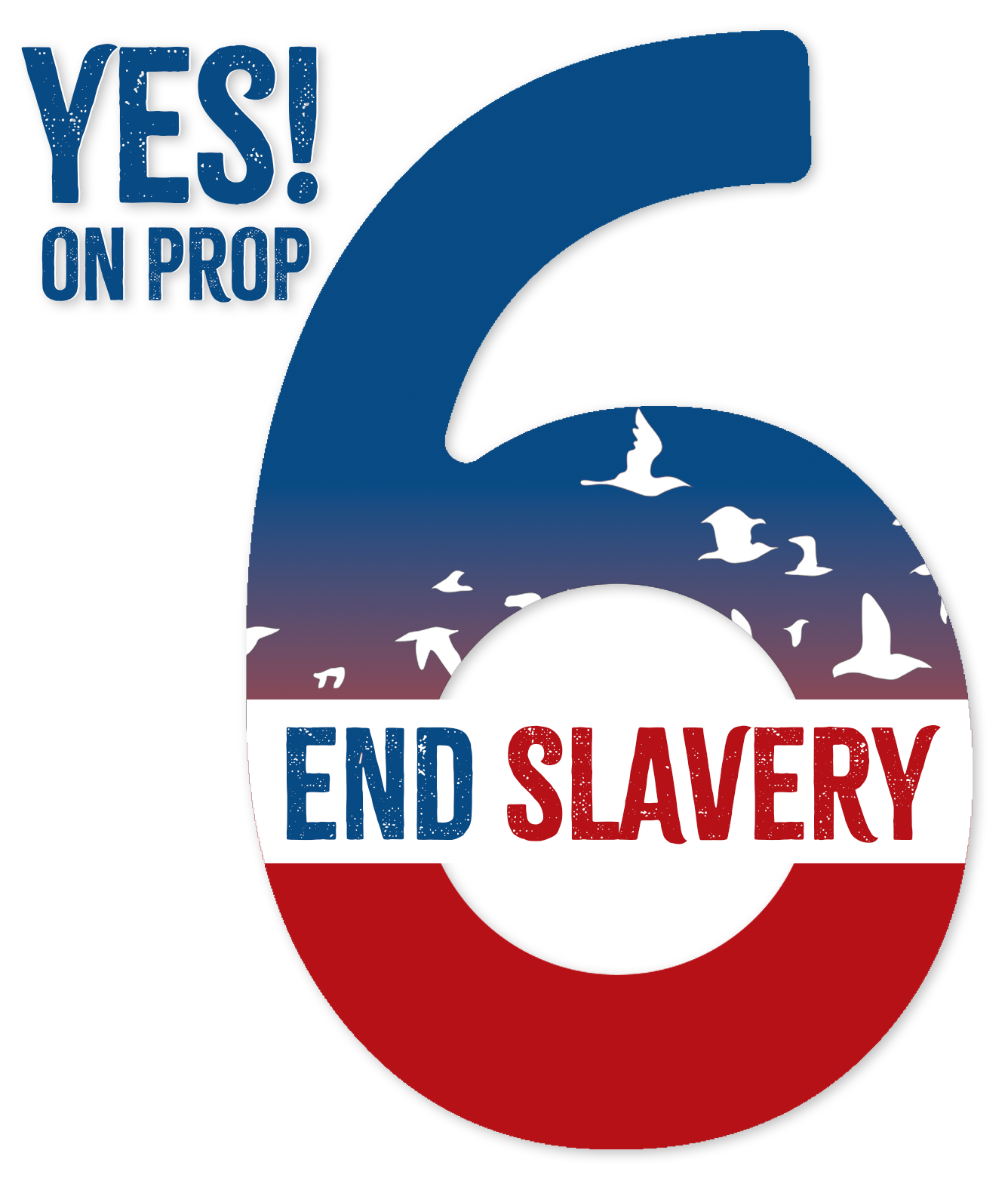Prop 6 FAQs
Prop 6 does not increase wages. Compensation for any work assignment in state prison is set by the Secretary of the Department of Corrections and Rehabilitation, while compensation for any work assignment in county and city jail programs are set by local ordinance.
**Prop 6 does, however, save taxpayers money by removing barriers to rehabilitative programming that’s proven to decrease recidivism, decrease victimization, and therefore improve public safety. It costs taxpayers nearly $133,000 per year just to incarcerate one person.
Incarcerated individuals do not have the ability to choose their jobs or their work hours, and programming and job assignments occur at the same time. Accordingly, if someone who is incarcerated wants to finish their degree but they’re assigned a job at the same time as the class they need to participate in, they don’t have the opportunity to complete their education. Forced labor assignments are prioritized over rehabilitative courses because work assignments are forced and accompanied by punishment upon refusal.
No. It makes work assignments voluntary, and while work assignments are often coveted, Prop 6 also gives CDCR additional tools to incentivize incarcerated individuals to work. Although CDCR currently has a population of 91,966, there are only about 39,000 incarcerated people who currently have job assignments. This means that there are tens of thousands of people who can fill any vacant positions should a person take the responsibility of wanting to do rehabilitation, education, drug treatment, job training, or therapy instead of working.
No. Prop 6 does not change any institutional regulations regarding CDCR ensuring cleanliness of an incarcerated individual’s living quarters. It’s common practice that when custody staff become aware of unsanitary conditions in a person’s living quarters, they will refer that individual to mental health treatment because it is often the result of severe depression or some other serious mental health disorder.
Actually, Assembly Bill 628 (Wilson), which was recently passed by the Legislature and approved by the Governor, addresses concerns with prison forced labor, and in order to have congruence with State law and mitigate expensive court litigation with conflicting legislative statutes and Constitutional law, it is imperative that our State Constitution is in alignment with recent changes in legislative statute.
Prop 6 does not change any state law or institutional regulations pertaining to court-ordered restitution payments. Prop 6 actually increases the likelihood that victims will receive restitution. By prioritizing rehabilitation and education, California will increase the likelihood that incarcerated people will be gainfully employed upon their release and are therefore able to better meet their restitution obligations.
Voter FAQs
October 7th is the deadline for ballots to start getting mailed to every California voter and early voting sites open. If voting by mail, it is recommended that you mail your ballot by October 29th to be counted by the Election Day. Election Day is November 5th.
Register to vote here: registertovote.ca.gov
To register to vote in California, you must be:
- A United States citizen and a resident of California,
- 18 years old or older on Election Day,
- Not currently serving a state or federal prison term for the conviction of a felony and,
- Not currently found mentally incompetent to vote by a court
If you are on parole, you are able to register to vote. You can register to vote up until the day of the election on November 5th.
Register to vote here: registertovote.ca.gov
In most elections, during the period of 14 days prior to Election Day and including Election Day, an individual can go to the office of their county elections official to conditionally register to vote and vote a provisional ballot. Learn more here.
Quick links
Vote yes on Proposition 6 to reduce crime, victimization, spending on California prisons, and enhance public safety.
